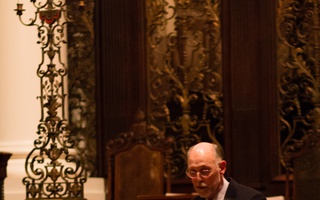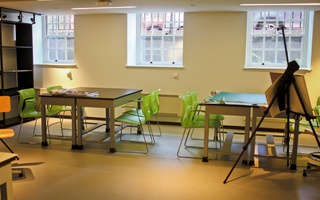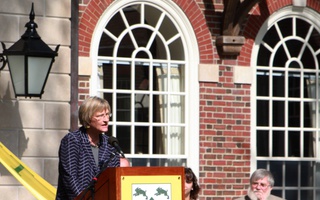House budgets have been modestly increased by five percent or less this year—with Quad House budgets increasing the most—due to an extensive evaluation of House finances initiated in the midst of the financial crisis.
No individual House budgets were cut this year, though the amount of money allotted to the House system still remains “nowhere near” levels that existed before the recession forced the Faculty of Arts and Sciences to slash budgets across departments, said Howard M. Georgi ’68, the master of Leverett House, who led the nearly year-long evaluation.
The purpose of the group that conducted the evaluation was to develop a fair scheme to dispense money across the Houses, while making sure that a student in any House “is afforded the same kind of experience” as he would in other Houses, said Dean of Student Life Suzy M. Nelson, who oversees the House system.
“It was a matter of coming up with a fair funding process, one that looked at all of the Houses, the history of when the Houses came into existence, and the funds that existed in each House based on their history,” Nelson said.
But the group decided to develop a model for House funding when it discovered that House budgets were not the product of a systematic formula, Georgi said.
“We quickly learned that the budgets were based on historical accidents and back-room deals,” Georgi said. “There was no rhyme or reason to any of this.”
After interviewing House staff and comparing the budgets and programming of each House, the group discovered that the Quad Houses were generally underfunded, although not by a large amount, Georgi said.
Beginning this year, older Houses will draw on their endowments more heavily than in previous years, although much of this money remains restricted to very specific uses, according to Nelson.
These changes were in line with a spending philosophy that rose to the forefront in FAS at the height of the financial crisis: the first-dollar principle, which calls for the spending of dollars designated for specific purposes before dispensing money that doesn’t face similar restrictions.
Adams House Master John G. “Sean” Palfrey ’67 said that while he wishes his House could continue to use its individual funds to supplement rather than replace the funds provided by FAS, he understands the rationale behind the change.
“The College, though short on money, didn’t want to cut back unfairly on Houses, whether they have resources or not,” Palfrey said.
Though the Houses are operating with less funding than before the financial crisis and have had to pare down some non-essential functions, budget planners have sought to avoid a scenario where Houses lose their uniqueness.
“The Houses understood that we don’t want to make everyone the same,” Georgi said. “We want to preserve the autonomy of the Houses.”
—Staff writer Danielle J. Kolin can be reached at dkolin@fas.harvard.edu.
—Staff writer Naveen N. Srivatsa can be reached at srivatsa@fas.harvard.edu.
Read more in News
Brown Calls for Global CoordinationRecommended Articles
-
Housing Budget Cuts ContinueWhile administrators and tutors can speak at length about how the limited effects of the cuts, no one is certain as to when they will end—and given history and future plans, that end may not come anytime soon.
-
FAS Hopes For Increased Endowment FundingSenior administrators in the Faculty of Arts and Sciences have provided loose guidelines to departments for long-term financial planning that foresee a growth in the distribution from the University endowment to pre-2008 nominal levels by 2018.
-
 Staying Afloat
Staying Afloat -
 Vigil Honors Lives of College Student and Alumnus
Vigil Honors Lives of College Student and Alumnus -
 McKinlock Renovations Draw Praise from Leverett Community
McKinlock Renovations Draw Praise from Leverett Community -
 McKinlock Renewal Lauded at Ribbon-Cutting
McKinlock Renewal Lauded at Ribbon-Cutting













